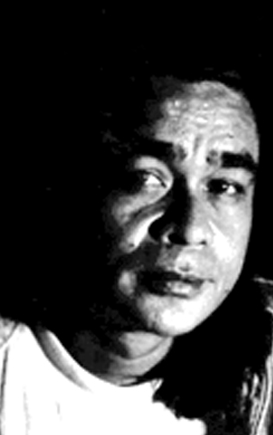
Raymund Fernandez
If the rumour circulating turns out to be true, this might be the last Kinutil for a while. I am talking, of course, about the rumour of an impending declaration of a revolutionary government in our country. One does not want to sound alarmist but we have travelled down a dark uncertain path for a while now. And as in times like these as in times past, you never know when a whiff of something about to happen can prove useful.
But then, I have always written as if every piece I write might be my last. This method of discipline I learned from my late curator friend Bobi Velenzuela. Bobi included me in an art show once where he gave his artists this instruction: Make your art as if it were the last you would ever do. I was happy to comply and learned much along the way. But what if this were the last Kinutil ever? What would I say?
I would start by reminding us where we all began. We wanted a better country. And we thought we were on the way there. The economy was doing well. There was a palpable improvement over all of our collective respect for the rule of law. We only needed to be patient and then we would achieve our goals. Albeit, we had problems that needed to be confronted collectively in a democratic and orderly manner. I thought we were on the way there. Until something quite strange happened. A government was elected which reversed all that. Certain people were sent to jail who did not deserve it, certain others were released from it who should not have been released. Thousands of deaths, general instability, and now we travel into a long dark uncertain corridor of history. And perhaps, for a while, things may seem hopeless. But we have been through a dictatorship before. We know what to expect. And this time around, we know better what to do.
The times are different now. Back in the seventies, Marcos needed simply to muzzle media. And yet, we were still able to communicate relatively freely between each other. Can media ever be muzzled that way again? Can a dictatorship muzzle social media without looking too way out on a limb villainous? Can a dictatorship really survive here in this day and age? What can they do? Confiscate all our cellphones?
There is something about a “revolutionary government” that is inherently funny, ironic, and dangerous in a self-inflicted way. If it should happen, we will then see the prospect of a government revolting against itself – something not hard to understand considering the revolting things it has done so far. And yet, as soon as the president declares a revolutionary government, certain implications become fact. This act immediately and legally means that the sitting president has abdicated his position. The 1987 Constitution is, of course, declared suspended. But such suspension can only be legally illegitimate. It can only be enforced by means of fascistic force. It becomes the political right of every citizen to decide either to recognise or not the revolutionary government. Our loyalty becomes a political question. Otherwise, absent such a resolution of that political question, it must be presumed that the 1987 Constitution is still and will perpetually be in force, since there is no provision in the 1987 Constitution to define or even countenance such “revolutionary government.” There is an actual discontinuity of constitutional legitimacy. This means that as soon as Duterte declares this “revolutionary government,” he effectively resigns from the presidency in the eyes of the 1987 Constitution. The “revolutionary government” can move to declare a new constitution. But in the meantime, Vice President Leni Robredo immediately becomes president; and Chief Justice Maria Lourdes Sereno may immediately administer her oath of office as the new president of the republic under the aegis of the 1987 Constitution.
The result? There will effectively be two governments in our country. One whose legitimacy is constitutional by virtue of the 1987 Constitution; the other whose legitimacy is nothing more than the imagination of a lone citizen willing to use the desperation of force to impose his own autocratic rule. Then it becomes a question for the international community to choose which government it will recognise. What happens after that is not at all difficult to imagine.